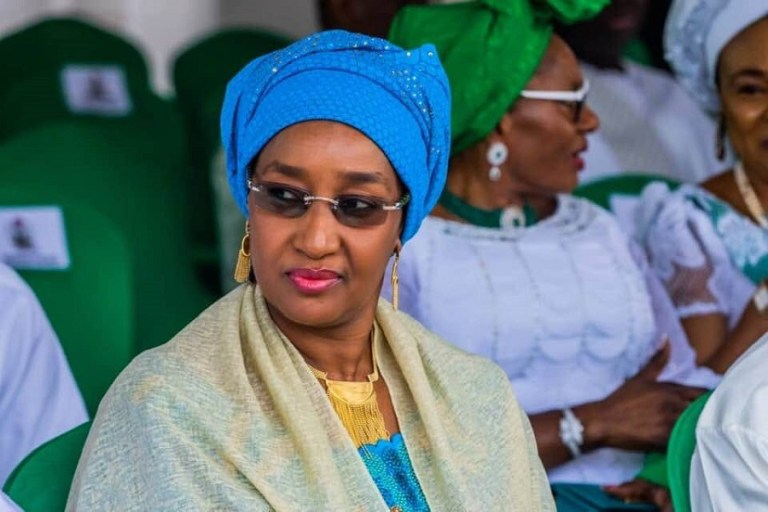The Minister of Humanitarian Affairs, Disaster Management and Social Development, Sadiya Umar Farouq, has disclosed that 330,000 Nigerian refugees are currently residing in Chad, Cameroon and Niger Republic.
This is a result of the protracted insurgency and armed banditry in the north east and north west,communal and the farmers/herdsmen clashes in the Middle Belt and the Southern region, riverine floods, drought, as well as fires and industrial accidents, among other things.

The Minister made the disclosure when she was hosted in a Chatham House Webinar to discuss Nigeria’s humanitarian challenges and worsening food crises in Nigeria.
The breakdown of the 330,000 Nigerian refugees in neighbouring countries, according to the Minister, include 16,634 in Chad, 118,409 in Cameroon, while Niger Republic has 186,957.
It would be recalled that the World Food Programme (WFP) estimated that 3.4 million people are currently facing acute hunger in Borno, Yobe and Adamawa states, and that another 4.3 million are entirely dependent on food assistance from the government or multilateral organisations across the country.
Sadiya Umar Farouq, however, revealed that her ministry has launched two key frameworks aimed at boosting humanitarian actions and making them more practicable and impactful.
According to her: “The first is the Humanitarian Development Peace Nexus Framework, which is derived from the UN Triple Nexus principles that believes development causes peace and that humanitarian actions can bring about development.
“Second is the Localization Framework, an initiative adopted after the commitment of stakeholders at the 2016 World Humanitarian Summit to reenergize the concept of localization of aid.
“The concept seeks to make the humanitarian system more effective and relevant by ensuring that humanitarian preparedness and response capacity is domiciled with those nearest to the crisis- affected populations as they are best placed to respond quickly and appropriately”.
The Minster, however, said that her ministry has adopted some approaches aimed at mitigating the sufferings caused by humanitarian situations leading to food crises in the country.
Sadiya said: “The food security challenges in the Northeast are peculiar due to the fluid and volatile situation in the region.
“Nevertheless, the Ministry has been working effectively with both humanitarian stakeholders and theMilitary to facilitate humanitarian access and promote accountability in the humanitarian space within the Civil-Security Framework and coordination platform.
“The recently approved national IDP Policy also provides leadership and guidance framework towards food security for the North-East region, as well as promotes minimum standards and thresholds to tackle ongoing displacement until a durable solution is established for the IDPs”.